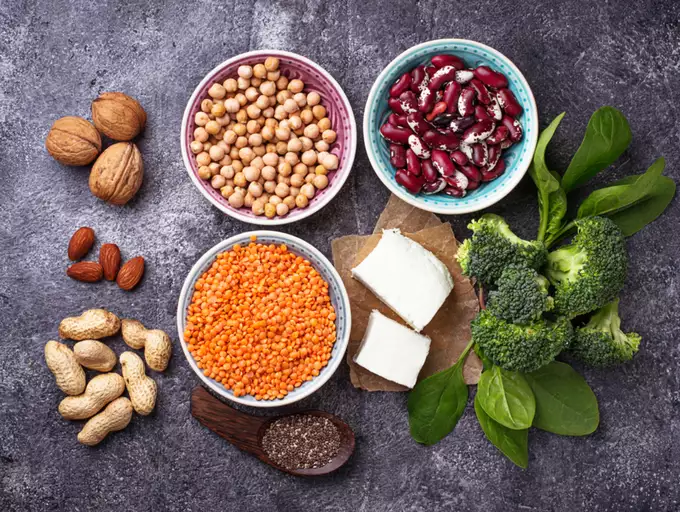There has been a significant shift towards plant-based diets in recent years, with individuals seeking healthier and more sustainable alternatives to animal-based products. One crucial aspect of any diet is protein intake, which is vital in building and repairing tissues, supporting immune function, and providing energy. While animal products have long been synonymous with protein, a wealth of protein-rich options are available in the plant kingdom. This article will delve into the world of protein sources, exploring some of the examples of plant protein and highlighting the diversity they bring to the table.
The Protein Powerhouses of Legumes
Legumes, such as lentils, chickpeas, and black beans, are some of the best examples of plant protein. These versatile plant-based sources offer an excellent combination of protein, fiber, and essential nutrients. Lentils, for instance, contain around 18 grams of protein per cooked cup, making them a perfect addition to soups, salads, or even veggie burgers. Adding legumes to your meals increases protein intake and provides a substantial dose of dietary fiber, aiding digestion and promoting a healthy gut.
The Mighty Grains and Seeds
Grains and seeds are often overlooked in protein, but they pack quite a punch. Quinoa, hailed as a complete protein, contains essential amino acids necessary for optimal health. With approximately 8 grams of protein per cooked cup, quinoa can be a satisfying base for salads, stir-fries, or a delicious side dish. Chia seeds, on the other hand, offer a surprising 4 grams of protein per ounce and are an excellent addition to smoothies, yogurts. These tiny seeds also provide a generous amount of omega-3 fatty acids, contributing to heart health.
Green Goodness: Leafy Greens and Vegetables
Leafy greens and vegetables are packed with vitamins and minerals and offer a decent protein content. Spinach, for example, contains approximately 5 grams of protein per cooked cup and can be enjoyed in salads, sautés, or smoothies for an extra nutritional boost. Broccoli, a versatile cruciferous vegetable, offers approximately 4 grams of protein per cooked cup and is enjoyed steamed, roasted, or added to stir-fries. Incorporating more leafy greens and vegetables into your meals is an excellent way to increase overall protein intake while reaping the benefits of their rich nutrient profiles.
Nuts and Nut Butter: A Protein-Packed Snack
Nuts and nut butters are delicious and serve as a valuable source of plant-based protein. Almonds, for instance, offer approximately 6 grams of protein per ounce and make for a satisfying snack on their own or as a crunchy topping for salads and desserts. Peanut butter, a staple in many households, contains around 8 grams of protein per 2 tablespoons. Including a variety of nuts and nut butters in your diet boosts protein intake and provides essential fats and other beneficial nutrients.
Conclusion
As the popularity of plant-based diets continues to rise, it is essential to recognize the abundance of protein-rich sources available in the plant kingdom. From legumes and grains to leafy greens and nuts, these powerful protein sources offer diverse flavors and nutritional benefits. Incorporating plant-based proteins into your diet supports your health and contributes to a more sustainable and eco-friendly food system. So, embrace the richness of plant-based protein and embark on a journey towards a healthier, more balanced lifestyle.
